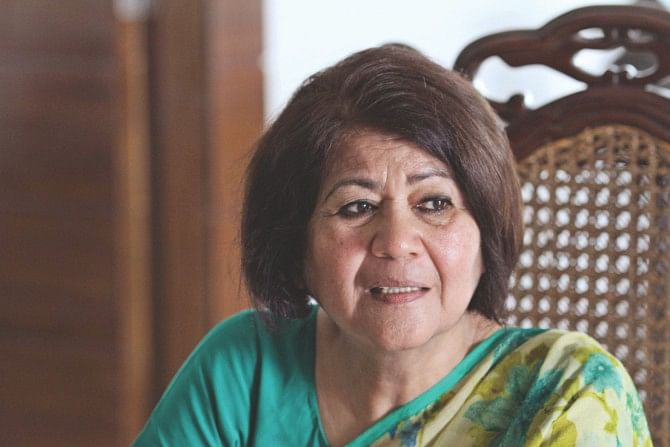MCCI: The voice of responsible business
MCCI: The voice of responsible business

It was in 1904, when the region was going through an industrial growth spurt, that the seed of the Metropolitan Chamber of Commerce and Industry was sown.
Known as the Narayanganj Chamber of Commerce, it was established by the European entrepreneurs of Narayanganj and Dhaka with the sole aim of championing trade and commerce in the East Bengal and Assam province. The chamber, first of its kind in the region, was utilised mainly by British businessmen to facilitate jute trade.
Its membership demographic changed with the withdrawal of the East India Company from the subcontinent, as more local businesspeople started to coalesce around the chamber.
In 1950, the chamber was renamed as the Dhaka-Narayanganj Chamber of Commerce, and for the next two years, its extensive work led to an increase in exports of jute.
In order to deal with the increasing tempo of industrialisation in the eastern part of the Indian subcontinent, the chamber realised that it should be authorised by the constitution to deal with industrial as well as commercial matters. Subsequently in 1952, it was renamed the Dhaka-Narayanganj Chamber of Commerce and Industry.
The chamber segued to its current form in 1979, a platform to influence decision-makers and ensure the best possible environment for trade and commerce for its members and the nation at large.
“We have since gone from strength to strength,” said Rokia Afzal Rahman, president of the MCCI, on the occasion of the chamber's 110th anniversary.
Today, it is poised not only to proactively assist its members, who are more than 300, in their business dealings but also to contribute positively to the nation.
MCCI's member companies, hailing from all sectors and representing most of the large enterprises in Bangladesh, including multinationals, have created hundreds of thousands of job opportunities for the economy.
The chamber is represented in 16 advisory committees of the government, ranging from exports and consultative committees of industries, commerce, communications, jute, textiles, power ministries, Chittagong port, Customs House, the National Board of Revenue, Bangladesh Standards and Testing Institution and Bangladesh Securities and Exchange Commission.
Also a former caretaker government adviser, Rahman said the chamber firmly pursued an objective approach to socio-economic issues, which successive governments appreciated.
Its suggestions and recommendations were given much weight by all governments, and in recent years, they were included in the Companies Act, Bankruptcy Act, Consumer Protection Act, industrial policy, pre-shipment inspection, formation of Bangladesh Energy Regulatory Commission, alternative dispute resolution, VAT and customs and financial reporting acts.
The socially responsible views often help the business community and the government find a common path of fulfilment. And in the process, MCCI sealed its reputation as the most effective channel of communication between the country's business community and the government.
The chamber has been always a non-political organisation, but it made an exception in 1971. It covertly offered whole-hearted support for the cause of independence, and on the night of March 26, 1971, it hoisted the flag of Bangladesh at the rooftop of its office.
It donated food and money to the freedom fighters during the country's nine-month struggle and supported the formation of the new government.
The chamber's role became much more important after independence. It helped the government with the privatisation process through research and actively participating in policymaking.
Today, the MCCI performs a leading role in trade policy formulation, facilitates trade and investment, assists in business start-ups, settles trade disputes, issues certificates mandatory for business, encourages members to carry out corporate social responsibility activities and so forth.
The MCCI contributed to the establishment of sectors such as education, health and environment as well.
It became a member of the International Chamber of Commerce in 1984 and since then, has forged new links. It signs protocols and memorandum of understandings with foreign chambers for promoting international trade.
It also plays a vital role in areas of bilateral relationships, diplomatic negotiations and representation of Bangladesh in the outside world.
The MCCI also has great interests in social and humanitarian causes -- and just about anything that enhances the well-being of people in Bangladesh.
It played key roles in setting up Tolaram Women College in Narayanganj, Viqarunnisa Noon School in Dhaka, Udayan School, Chittagong Public School and the Institute of Business Administration of Dhaka University.
In the health sector, it had extended financial assistance towards the development of Narayanganj Victoria Hospital, Holy Family Red Crescent Hospital and Dhaka Shishu Hospital.
On the environment front, it promoted environment management programme with the World Bank in 2000 and introduced an award to honour environment heroes. It also took part in the clean river campaign launched by The Daily Star.
“The MCCI has been playing a leading role primarily to help in the economic progress of the country. But it is aware that such progress depends on taking comprehensive and sustainable initiatives elsewhere and these involve making contributions to the nation on social and humanitarian grounds,” Rahman said.
The chamber's motive is to promote inclusive and responsible business always, she said. “It means we will not only look at making profit, but also look at building the nation.”
For the last one decade, the MCCI has been trying to disseminate the philosophy of corporate social responsibility in a much more systemic and comprehensive manner than ever before.
Going forward, the country's oldest and most representative trade chamber is bent on continuing to play a leading role in the business affairs and in pioneering paths to prosperity and development in alliance with governmental and non-governmental agencies.
“We will continue to play a leading role in influencing the social, economic and business environment of Bangladesh in order to generate sustainable economic progress.”